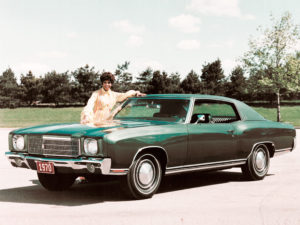Akio Toyoda is stepping down as head of Toyota Motor Corporation. The long-time executive is the grandson of Toyota’s founder and has been a vocal antagonist in the shift to electrification. His stepping aside could open the door for more investment and new Toyota EV models, so let’s look at what that could mean.
Currently, Toyota sells one EV in the United States, the bZ4X. We’ve seen another bZ concept vehicle and an EV from Lexus, but Toyoda has opposed the automaker jumping into electrification with both feet. His view is that moving to a zero-emissions world will require investment in several energy sources, including hydrogen. Toyota makes up half the United States’ hydrogen fuel cell vehicle offerings with the Mirai, sold only in California.

Toyota is the world’s largest automakers and is so far one of its slowest to release new electric vehicles. Just one percent of emissions-free vehicles in the U.S. came from Toyota, and its supply chain is not capable of supporting the shift. Toyoda’s view is that the automaker can do more to reduce emissions with more available, lower-cost hybrids than it would with a lineup full of EVs.
Whether that belief proves true is yet to be seen, but others in the automotive world aren’t hearing any of it. A sustainability executive at Swedish automaker Polestar strongly disagrees, telling media at an event in Australia that Toyota’s investment in gasoline technologies hinders its ability to develop zero-emissions vehicles. They were also clear that the world has to stop burning fossil fuels, despite Toyota’s ability to sell millions of efficient hybrids.
Koji Sato, Toyota’s incoming CEO, has a long history with the company, both at Lexus and GAZOO Racing. It’s unclear if he will reverse Toyoda’s thinking or go along with the flow. In his statement following Toyoda’s announcement, Sato acknowledged the need to push for zero-emissions vehicles, so it’s entirely possible things at Toyota will start to change.

Your Test Driver’s take
Despite loving and having grown up working on gas-powered vehicles, we recognize that things have to change to slow global warming. That said, a rapid shift to electric vehicles without considering the side effects for buyers and infrastructure may do more harm than good. It’s true that the drop in tailpipe emissions when switching to an EV drastically reduces individual drivers’ impact on the environment – at least while driving.
At the same time, it’s true that EVs are significantly more expensive, and the infrastructure to support them – chargers, mainly – is woefully underprepared for any significant increase in their numbers on the road. Viewed this way, Toyota’s measured approach makes sense. Foisting expensive vehicles onto buyers that don’t want to spend the money and don’t have readily available charging facilities won’t improve adoption; it’ll do the opposite.










